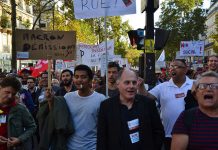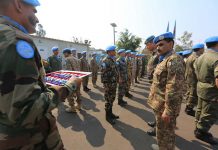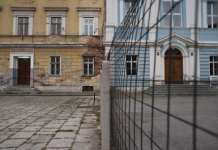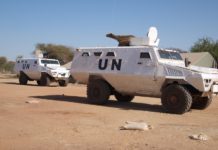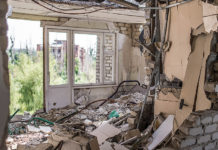On November 16th, the Quai d’Orsay in Paris will stand host to the National Humanitarian Conference (NHC), which will at the same time gather actors from the humanitarian and political scene but also, donors, researchers and journalists. Inspired by the Boinet-Miribel report and supported by the Emergency and Post-Crisis Think Tank (GRUPC) – an informal think tank constituted by humanitarian and institutional actors, the NHC is officially organised by the French Ministry of Foreign Affairs.
The aim of a ministerial meeting (French minister of Foreign Affairs, Mr. Alian Juppé and the European Commissioner of Humanitarian Action, Ms. Kristalina Georgevia, will as such be present) focalising on humanitarian action of French NGOs, is a strategic opportunity not to be neglected in a time where a mere meeting with a state secretary can seem impossible to obtain, even for major NGOs…
Above and beyond the retained themes, which are presented from article A. Boinet to B. Miribel (October edition of Grotius International), the crucial question has been to redefine the forms of dialogue and possible partnerships with the State and donors in terms of mutual roles and responsibilities.
Lately, the instrumental implementation, both semantic and operational, within humanitarian aid with regards to the political agenda has become a high-stake game of permanent controversy between humanitarian NGOs and the French State, whether it operating alone or in cooperation with organisations such as the EU and NATO. If one considered it perfectly normal that the State acts in accordance to its political motivations in certain times of crisis, then the State ought also to take responsibility of such and not hide behind a “humanitarian alibi”, where none in France today, even beyond the NGOs are to be fooled. It so happens, from time to time, that the political aims of a government coincide with those of a humanitarian NGO and that one can find themselves in front of a “convergence of interests” that would be regretful to neglect. However when such is not the case, the NGOs must be able to mark their difference in appreciation and be able to communicate with the French authorities in order to stand their ground without risk of interruption of dialogue with the latter.
Another high-profiled issue would be regarding the financial contribution of the French State in Emergency and Post-Crisis Situations. The complete financial independence being a reality only for a scarce number of NGOs, a fundamental discussion on the amounts and modes of possible financial attribution on these complex humanitarian situations is necessary. Such discussion would plausibly also enable the French State to develop a “political humanitarian strategy”, which, in order to gain in clarity, ought to have a multi-annual occurrence.
The National Humanitarian Conference foremost presents the possibility for the concerned NGOs to show that the way to install relationships and how to follow up with the public authorities cannot be issued form a blank sheet: we need to turn the page before writing a new. For the humanitarians, as for the public authorities and donors, it is above all a test of maturity: Maturity from the NGOs allowing a solid dialogue, the acceptance of objections and striving towards the prevention of breakdowns; maturity from the public authorities, and also the State, truthfully respecting the political and operational independence of the NGOs; and maturity from the donors, crucial partners, but who often derive from the device “who pays, decides”. It could be argued that it is a question of redefining the frame of possible interactions between multiple entities to multiple aims and statues, aware of their differences, but refusing both indifference as well as instrumentalisation. Although its importance, the “partnership” does not constitute the only imaginable funding method between the actors.
Supposing that a “healthy distance” between humanitarian actors and public authorities/donors could be achieved, one can wonder, would it be enough to handle the severe structural problems currently existing within the humanitarian field?
Probably not, because the appropriate context is henceforth European and the financial crisis (and political) that is agitating the 27 countries of the EU and the EC does not encourage any optimism. The recent polemic surrounding the important reduction of the European Food Aid Programme encouraged by Germany and other countries, speaks thoroughly about European solidarity and its capacities. Besides the fact that this reduction of food aid risk of pulling down hundreds of millions of people living in Europe into a socio-sanitarian situation far more alarming than that of today, it also seems to be the premise for the upcoming reorganisation to other important European organs, actors and donors within international solidarity.
The French humanitarian NGOs, have to this end, the duty of, partly deriving from their mandate and partly from belonging to civil society, to stand guard to a certain exigency and vigilance of how the French State, but also the European institutions, position themselves on the question of solidarity – and not only on the handling of crisis. To this end, Grotius International wish to uphold the role as “mediator” in order to enable all opinions to be shared but also in order to produce, in the North as in the South, a concrete rendering on the ground. Our active participation in the preparing of the National Humanitarian Conference is a mirroring of such determination.
Traduction : Anna Senno
Jérôme Larché
Derniers articles parJérôme Larché (voir tous)
- Guerre au Mali : de l’information monochrome à la stupide rhétorique bushienne – 2 février 2013
- La chasse aux terroristes du Nord Mali : le nouvel Afghanistan français ? – 13 janvier 2013
- 2013, « the yearafter » : du catastrophisme à l’optimisme lucide – 1 janvier 2013

